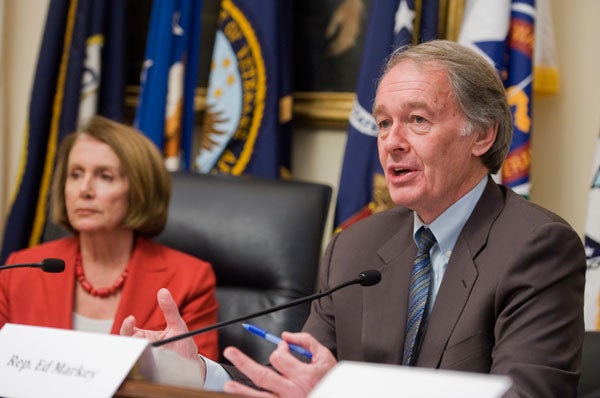Representative Edward Markey (D–MA) has grave misconceptions regarding contributions that nuclear weapons make to the U.S. and allied national security. On Wednesday, he introduced a bill that would cut $100 billion in nuclear weapons programs. This bill is co-sponsored by 34 other Representatives.
Not only would such cuts be disastrous for the already under-funded U.S. nuclear weapons infrastructure; they would also call into question U.S. commitment to extended deterrence and viability of the New Strategic Arms Reductions Treaty (New START) with the Russian Federation. In addition, the proposed cuts would do very little to solve the country’s fiscal problems.
Last October, Markey sent a letter to the Joint Select Committee on the Deficit in which he stated that the U.S. spends “over $50 billion a year on the U.S. nuclear arsenal” and called on “the Super Committee to cut $20 billion a year, or $200 billion over the next ten years, from the U.S. nuclear weapons budget.”
But according to Principal Deputy Undersecretary of Defense James Miller, the figure was close to $214 billion over 10 years (about $88 billion for the Department of Energy and more than $125 billion for the Department of Defense). Markey’s initial call of gutting $200 billion over the next 10 years would result “in the immediate and unilateral nuclear disarmament of the United States,” according to Congressman Mike Turner (R–OH). A $100 billion cut would be just as devastating.
Currently, more than 30 countries all over the world rely on U.S. nuclear weapons. These countries have not developed their own nuclear weapons or expanded their current arsenals because they have believed that the U.S. would respond with a devastating force if they are threatened. Credibility—whether an enemy actor believes the U.S. will come to the aid of its allies—is a key consideration for any opponent when deciding whether to launch an attack. The credibility of U.S. nuclear weapons will diminish if they are not properly maintained. This could cause allies to develop or expand their current nuclear weapon arsenals.
During the Senate’s consideration of New START, the Administration promised to increase funding for the U.S. nuclear weapons complex. The Administration deemed these investments “essential to facilitating reductions while sustaining deterrence under New START and beyond.” The Administration, however, did not manage to secure funding for maintaining nuclear weapons laboratories and their core competencies in the fiscal year 2012 budget. Representatives supporting this bill are people who overwhelmingly support President Obama’s policies. To that end, it is even less clear that the Obama Administration will honor its earlier commitments to nuclear modernization.




























